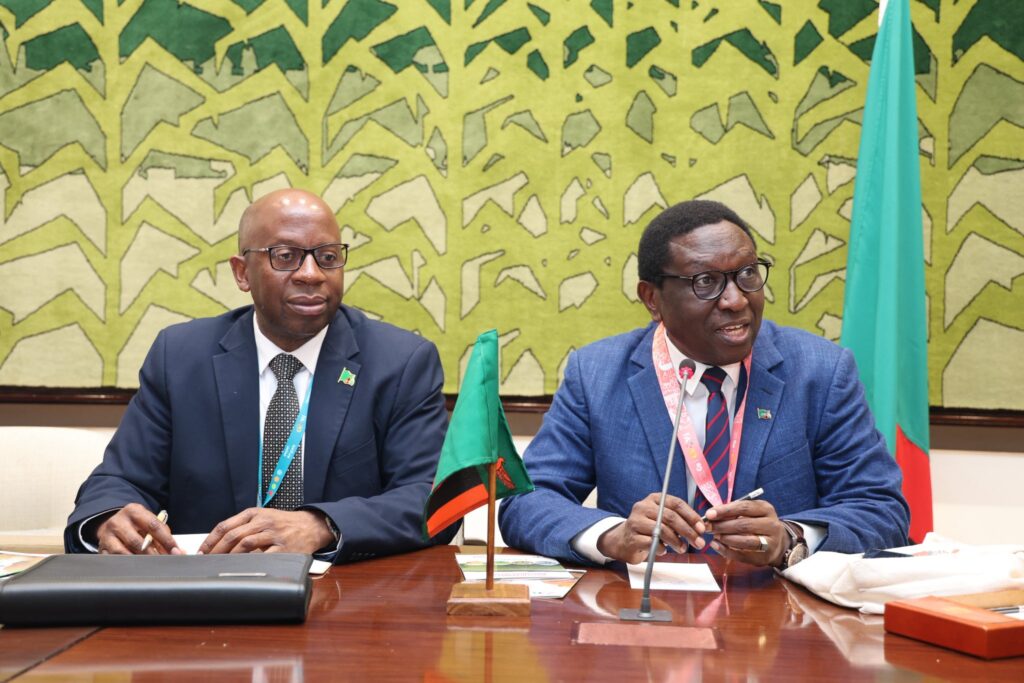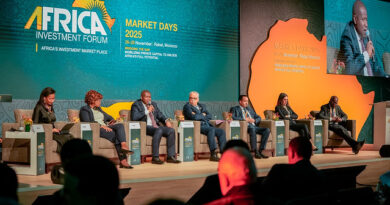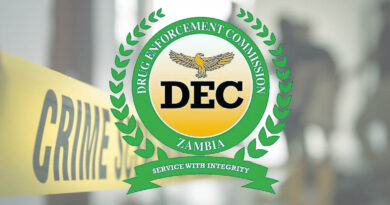Zambia Calls for Boost in Agricultural Investment to Become Southern Africa’s Food Powerhouse
Zambia has renewed its appeal for increased private sector participation and foreign investment in its agriculture sector, positioning the country to become a key regional food hub.
Speaking at a bilateral meeting with Bayer on the sidelines of the Hand in Hand Initiative Investment Forum 2025 at the Food and Agriculture Organization (FAO) headquarters in Rome, Minister of Fisheries and Livestock, Engineer Peter Kapala, emphasised the country’s readiness to collaborate with investors to expand production and meet President Hakainde Hichilema’s targets of producing 10 million metric tonnes of maize, one million metric tonnes of soya beans, and one million metric tonnes of wheat annually by 2030.
“Zambia is open for business. We are ready to work with private investors and development partners to unlock the potential of our agriculture sector through increased investment in irrigation, mechanisation, and agro-processing,” Eng. Kapala said.
Highlighting Zambia’s strategic advantage, he noted that the country’s central location in Southern Africa, bordering nine nations, provides access to a regional market of over 400 million people. Coupled with vast arable land, abundant water resources, and a stable investment climate, Zambia offers an attractive base for agribusiness expansion and regional trade.
The minister outlined government measures to attract investment, including reforms in the seed and livestock sectors, establishment of mechanisation hubs, and improved access to agricultural financing. Initiatives such as the Sustainable Agriculture Financing Facility (SAFF) are enabling farmers, particularly smallholders, to access affordable loans for solar-powered irrigation systems, supporting year-round production and climate-smart agriculture.
Eng. Kapala also highlighted government investment in rural roads, storage facilities, and digital platforms to improve market access, enabling farmers to supply both domestic and regional markets efficiently.
Commending Zambia’s investment environment, Marija Milivojevic, Swedish Minister Counsellor and Deputy Permanent Representative to FAO, praised Bayer’s Itaba Project in Kabwe, which includes a newly commissioned €32 million maize seed facility. The facility triples Zambia’s production capacity for high-quality maize seed, supporting maize consumption for approximately 30 million people across the region.
Ms Milivojevic noted that the project will reach 6.4 million smallholder farmers in Zambia and other Sub-Saharan countries this year, with projections to serve 10 million farmers by 2030. The investment is the second largest by a European company in Zambia, reflecting growing international confidence in the country’s agriculture sector.
Eng. Kapala reaffirmed the government’s commitment to supporting large-scale, impactful agricultural investments that create jobs, boost exports, and strengthen food security.
“We want to see more investments like Bayer’s projects that transfer technology, empower farmers, and help us build resilient agricultural systems,” he said, urging donor agencies and international financial institutions to channel more funding toward irrigation, mechanisation, and agricultural research.
Zambia’s geographical advantage and abundant resources, the minister added, make it an ideal destination for sustainable agricultural investment capable of meeting both domestic and regional food demands.



